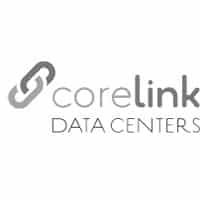In the office of today, a lot of machines beep, ring, and create various alarm notifications. Nearly everything from the copy machine to the coffee machine has an alert to bring attention to things such as low toner, finished cycle, or some other status. Unlike the pre-computer offices of the twentieth century, where the only bell usually heard was from the typewriters as the secretaries reached the end of the line, modern offices have a lot of minor little alarms – and of course, a few big and very important alarms, as well. For instance, just one device, the Uninterruptable Power Supply (UPS) that helps to keep a steady power supply to the company data centers, has both small, less-important notifications, and more urgent alarms. Knowing the difference between a status update or alert, and a system critical alarm that requires user action, is one key to keeping an office operating smoothly.
What is That Alarm About?
For workers who are not in the IT department, the computer systems of the office can be both familiar and intimidating. On the one hand, nearly everyone in the company uses the workstations, tablets, laptops, and other devices that are part of operations. On the other hand, though, the complicated computer programs, algorithms, functions and electronics behind the familiar facade of the keyboards and screens that all workers use everyday is mostly not well understood by the average employee.
When the company’s data center UPS activates, for instance, in the event of a power loss for any reason, it will trigger a notification. Some people become alarmed and feel a need to call the experts when they see such a situation. In most cases, though, the truth is that the system worked just as it should, and there is not a problem to report. The UPS is there to keep power supplied in the event of power interruption in the system. If there is an unusual event where the main power will remain unavailable for a longer time, it may be necessary to take immediate action when the UPS system kicks in. Generally, though, full power will soon return, and the system can return to normal operation. In that case, there is no need to call the IT experts, as the system is working properly and doing its job.
Power to Electronics
The computers and devices that smooth the flow of much information and work today naturally require a steady and predictable supply of electricity. Electronic machines can be very sensitive to sudden power bursts or fluctuations. Despite significant advances in power grid technology, the fact remains that in the real world, power systems do not provide an exactly constant, perfect flow of electricity. In reality, the amount of electricity ebbs and flows and surges, depending on needs, demands, and production in the system. While the slight variations in power supply are not harmful to most electrical appliances around the home or office, the very sensitive and sophisticated computer equipment can be damaged or ruined by power supply fluctuations.
Realizing the risks to equipment and data that can come from power surges or sudden unexpected power outages, electronics manufacturers created solutions in the form of UPS devices, as well as Power Distribution Units (PDU). For computer-sensitive companies, a PDU can help to smooth the flow of electricity to various devices, ensuring that none gets hit with a spike of energy that can burn out electronics, and that none are lacking the power they need to do their jobs. Many large industries rely on PDU to moderate the flow of power to a variety of electronic devices. Naturally, data centers are one of the primary users of PDU, but they are also utilized by government operations, hospitals, as well as many data-intensive industries.
The More You Know. . .
While not every employee in every company can be a computer expert with a thorough working knowledge of the ins and outs of the system, it helps to have employees who are thoroughly trained and knowledgeable on the operations that they will come in contact with in their work. Particularly for parts of the system that are not used everyday, but that can be vital in the event of power system problems, such as the UPS and possibly the PDU if in use in the company, it is useful to have thorough training in the basic workings of the system and the various alerts and notifications that the devices may provide in different situations of normal operations.
Workers who are informed of what to watch out for and trained on the various levels of warnings and notifications that will inevitably come from the computer and its power backup systems are generally more confident and less prone to call for expert help that is often unnecessary and costly. One of the key mission functions of a company’s IT operations is to minimize downtime and promote efficient, productive use of the electronic devices that the company uses. The better that all employees can understand some of the more mysterious inner workings of the machinery that tend to be out of sight and out of mind, the more likely they are to be productive and pro-active in resolving small issues in-house and in the simplest way possible. When workers know which notifications are indicators of a system working well and resolving internal problems adequately, and which alarms require quick action to maintain data stability and computer operations, then they can perform their own jobs better, knowing the computers are there for them when they need them.




























